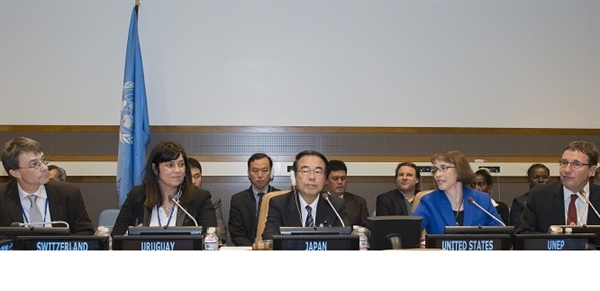
New York, 24 September 2014 – Twenty-two countries have taken major steps to address the emissions and releases of one of the most notorious heavy metals – mercury.
A year after the adoption of the Minamata Convention on Mercury, Ministers and senior government officials from around the world have renewed the international community’s commitment to combat the global threat posed to human health and the environment from mercury pollution worldwide.
The high-level special event - “The Minamata Convention on Mercury: Towards its early entry into force and effective implementation” - witnessed three States agreeing to become Parties to the Minamata Convention and an additional 15 States signing the treaty. In addition, two more States joined the Convention and three signed it since UN Treaty Event started on 23 September 2014.
The Governments of Djibouti, Gabon, Guyana, Monaco and Uruguay have joined the United States as the first six future Parties to the Convention. The United States had joined the Convention last November.
An additional 18 countries, bringing to the total number to 120, used this occasion to sign the Convention, namely: Belarus, Cameroon, Croatia, Cyprus, Ghana, Guinea-Bissau, Honduras, Latvia, Liberia, Malaysia, Monaco, Montenegro, Poland, Republic of Korea, Russian Federation, Sudan, Syrian Arab Republic and Turkey.
Held in the margins of the opening of the sixty-ninth session of the United Nations General Assembly, and in conjunction with the Secretary-General’s annual Treaty Event, the event was jointly convened by the Governments of Japan, Switzerland, the United States and Uruguay, with the assistance of UNEP, at the United Nations Headquarters in New York.
Read UNEP Press Release on the special high-level event at :
https://unep.org/newscentre/Default.aspx?DocumentID=2796&ArticleID=11001&l=en